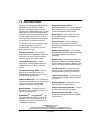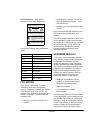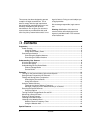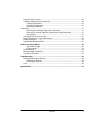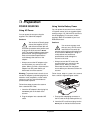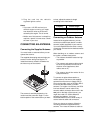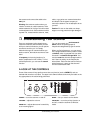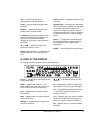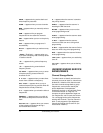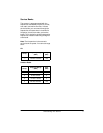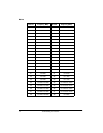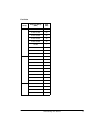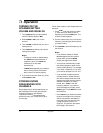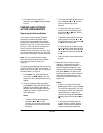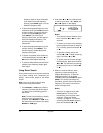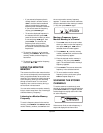
10
Understanding Your Scanner
SRCH
— appears during service bank and
direct frequency searches.
SCAN
— appears when you scan channels.
MAN
— appears when you manually select a
channel.
PGM
— appears while you program
frequencies into the scanner's channels.
PRI
— appears when you turn on the priority
feature.
DLY
— appears when you program a 2-
second delay.
Error
— appears when you make an entry
error.
-dUPL-
(Duplicate) — appears when you
try to store a frequency that is already stored
in another channel.
-d-
— appears during a direct frequency
search.
-b-
— appears during a service bank
frequency search.
Ch-FULL
— appears when you try to enter
a frequency during a search when all
channels are full.
F L-out
— appears when you start direct
search from a locked-out frequency.
FLo
-FULL
— appears when you try to
lockout a frequency during a search when 50
frequencies are already locked out.
L-r
— appears when you review the lockout
frequencies.
dEFAULt
— appears when you unlock all
the locked-out frequencies from the service
bank.
FLo
ALL-CL
— appears when you remove
all the locked out frequencies during a
service bank/direct search.
P
— appears when the scanner is tuned to
the priority channel.
ALErt
— appears when the scanner is
watching the WX alert tone.
WIrEd
— appears when you turn on the
wired programming mode.
StArt
— appears when the scanner starts
wired programming.
C-Err
— appears when the scanner
receives a check sum error during wired
programming.
D-Err
— appears when the scanner finds a
data error while using wired programming.
End
— appears when the scanner finishes
wired programming.
oFF
tonE
— appears when you set the key
tone off.
on
tonE
— appears when you set the key
tone on.
UNDERSTANDING SERVICE
BANKS/BANKS
Channel Storage Banks
To make it easier to identify and select the
channels you want to listen to, channels are
divided into 10 banks of 20 channels each.
Use each channel-storage bank to group
frequencies, such as those used by the
police department, fire department,
ambulance services, or aircraft (see “Guide
to the Action Bands” on Page 23). For
example, the police department might use
four frequencies, one for each side of town.
You could program the police frequencies
starting with Channel 1 (the first channel in
bank 1) and program the fire department
frequencies starting with Channel 21 (the
first channel in bank 2).



